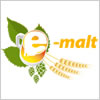Το καλάθι σας

Brazil: InBev, the world’s largest brewer by volume, is planning to turn Brahma, a popular Brazilian beer, into a truly global brand. Brent Willis, InBev's chief commercial officer, said in an interview that the global rollout of Brahma, which now is mostly confined to the Brazilian market, is expected around mid-year. While global beer sales have been flat in recent years, and particularly sluggish in many developed markets, InBev, formed in the merger this year of Interbrew of Belgium and AmBev of Brazil, sees a marketing opportunity in the fragmentation of the beer industry, at International Herald Tribune Eric Pfanner commented on December 28, 2004.
Despite a recent consolidation among brewers, local brands still control 80 % of beer sales, Willis noted, in contrast to the soft-drink industry, where global brands dominate. Willis, a former Coca-Cola executive, hopes to apply some of the marketing know-how from the soft-drink world to the selling of beer.
"The world's not waiting for another beer," Willis said. "But there are some unmet consumer needs out there. If you look at it that way, you have a significant brand." He added: "We used to be in the beer business. Now we're in the consumer relationship business."
InBev, the world's largest brewer, has about 250 brands, ranging from big names like Stella and Beck's to regional brands like Staropramen in the Czech Republic and Leffe in Belgium, to lesser-known local beers like Klinskoye in Russia. But it has a relatively weak position in the United States, which is dominated by Anheuser-Busch and SABMiller.
Analysts say the company will probably try to position Brahma against Corona, the top import in the United States, which is brewed by Grupo Modelo, a Mexican company in which Anheuser-Busch has a 50 % stake. Willis said promising markets like Russia and China will also get big marketing pushes.
Willis provided few hints of InBev's marketing approach, though he said the company would avoid one oft-trodden route in the beer industry: the "brand provenance" approach, which plays on hackneyed clichés about a country or a culture. "This is not going to be Brazil in a bottle," he said. "There won't be any of that superficial stuff, dental floss on the beach, that kind of thing." While Brahma will have a global brand image, the actual product, what Willis referred to as "the liquid," will be adapted according to regional tastes. Americans, for instance, tend to prefer weaker, thinner brews than Northern Europeans. Willis declined to disclose a budget for the Brahma introduction, but overall, InBev spends nearly €2 billion, or $2.7 billion, annually on marketing.
In the case of Stella Artois, that seems to have been money well spent. Though Britain has plenty of its own beer brands, the imported Stella, backed by an iconic advertising campaign that positions the brand as "reassuringly expensive," has grown into the top-selling premium lager and the third-best-selling beer over all.
Πίσω





